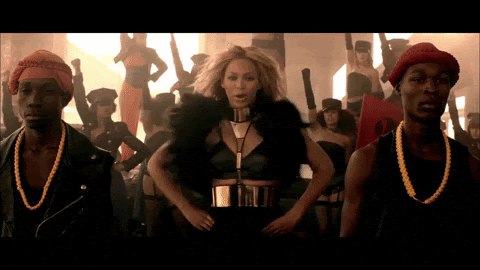Let’s talk about…having it all
Hello!!
Happy New Year! I hope it's got off to a good start. I accidentally poisoned my son (I'm being dramatic, it was an allergic reaction, he's fine) when I gave him the wrong milk at precisely 7:24am on 1st Jan, so the only way is up for me, or so you'd think...
Aside from being given various cars, robots and remote controlled dinosaurs for Christmas, my youngest was also gifted a dose of chicken pox. It felled my three year old on Christmas Eve and has finally caught up with my eldest this week, which is why I'm writing this next to him on the sofa as he has more screen time than you can shake a stick at!
Juggling work and a sick child straight after the holidays was not in my plans and it got me thinking about ‘having it all’ and what that means today. Originally it was meant as an empowering phrase back in the early 80s but now just makes me want to punch old skool feminism repeatedly in the face. I wonder if Generation Alpha will feel the same way about the Queen Bey classic 'who run the world' (girls)' when their time comes.
Let's talk about...having it all
The term 'having it all' catapulted into the mainstream in 1982 thanks to a book written by the then editor of Cosmopolitan, Helen Gurley Brown. She actually argued against the title but it was her editors that felt it was the best way to market the book (so they should really be the recipients of the afore mentioned punches). It was sold as a how to guide for women to have a family, a career and crucially, good sex (boy, do they know what parents with small children want!) but now it just feels like a patronising and out of touch statement (no comment on the actual content of the book because I haven't read it, but it does only include six pages on children so I'm yet to be convinced its reflective of real life working mothers even in the 80s).
In 2012 Anne-Marie Slaughter wrote an essay entitled 'Why women can't have it all'. She revealed that she quit her high paid, senior job at the US State department because she could no longer justify missing out on time with her family and seeing her sons grow up. It struck a chord and a year later she closed the first session of TedGlobal and what she said then still rings true over a decade later.
She talked about how companies should value caregiving. "Workers who have a reason to get home are more productive and efficient, and breadwinners who are also caregivers are more flexible and have wider ranges of experience." How governments need to recognise the equal value of working and caregiving and how society needs to allow men to be caregivers without judgement. Hear bloody hear!!
Although some things have moved forward, we're clearly still working on it! And so the notion that 'you can have it all, just not at the same time' as said by Betty Friedan but perhaps made more widely known by Oprah and Michelle Obama last year feels more relevant to modern motherhood instead.
It does make me feel better that having it all at the same time is seen as an impossible standard to set yourself. However, even if you recognise this and prefer the alternative mantra, you're still having to accept the very real impact having children has on your finances and career - hello motherhood penalty - and not your partner's (I'm generalising heteronormative relationships here). But of course what it does give you is quite possibly beyond the realms of measurement and would outweigh financial gain everyday of the week.
I guess it depends who you ask as to how you define having it all, but ultimately I think it's down to what it means to you and how that changes in your life as you get older.
It's also important to say that the notion of having it all suggests perfection and that just doesn't exist, especially not in the messy modern world of matrescence, so maybe having it all is completely unattainable from the start and is one of those phrases that we should kill off in 2024. A lot like cherish every moment...that can just get in the bin can't it!





